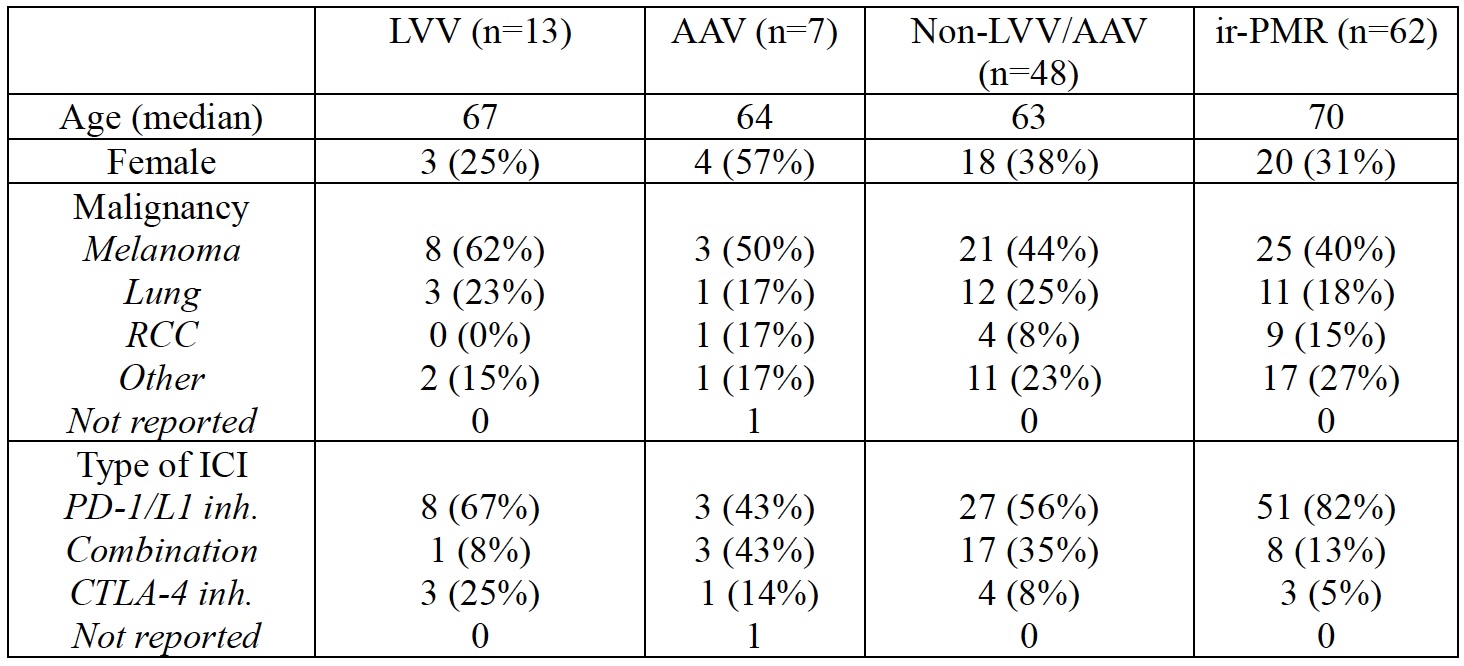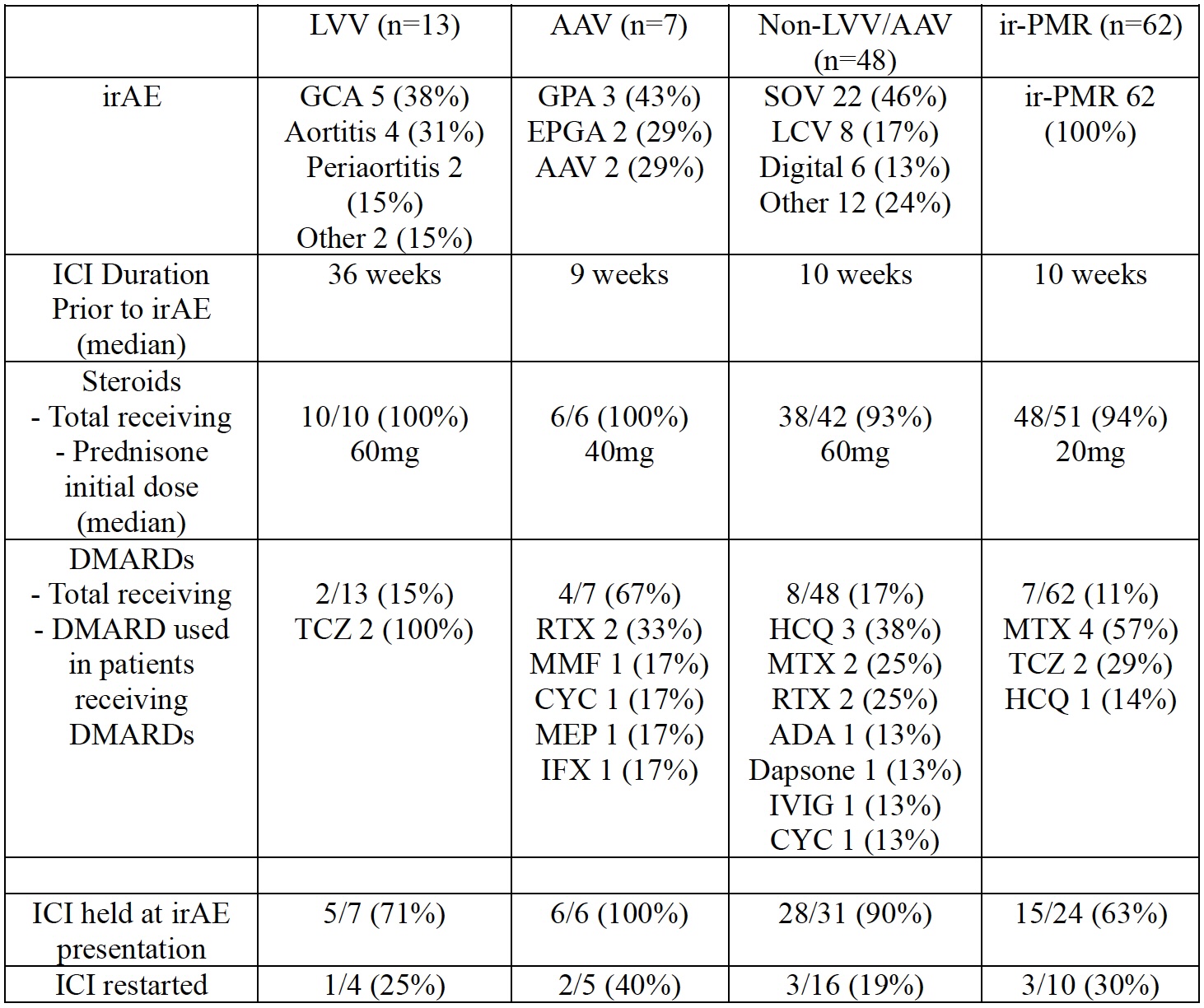Session Information
Session Type: Poster Session C
Session Time: 10:30AM-12:30PM
Background/Purpose: Immune checkpoint inhibitors (ICIs) are a class of cancer immunotherapy that have been associated with immune-related adverse events (irAEs). These include multiple rheumatic diseases such as ir-vasculitis and ir-polymyalgia rheumatica (PMR)-like syndrome. The presentations, treatments, and outcomes for patients with ir-vasculitis and/or ir-PMR are not well characterized.
Methods: We performed a systematic review of the literature to describe the characteristics of ir-vasculitis and ir-PMR. We searched MEDLINE and Embase databases from inception to July 2023. Included cases involved patients with cancer who had received ICI’s and subsequently developed vasculitis and/or PMR without a known prior history. We summarized background malignancies, ICI treatment, presentations of ir-vasculitis and/or ir-PMR, treatments, and outcomes.
Results: 443 articles were found by the search, 155 full texts were assessed, and 77 articles were included. These encompassed 68 cases of ir-vasculitis (13 large vessel, 7 ANCA-associated, 48 other) and 62 cases of ir-PMR. The median time to symptom onset was 12 weeks from first ICI exposure. 94% of patients were treated with glucocorticoids and 16% received DMARDs. Among 4 vasculitis patients who had the ICI continued, 2 had significant vasculitis complications. One was a patient with GCA who developed scalp necrosis. The other died due to complications of vasculitis. Among the 5 vasculitis patients who had the ICI held and restarted, 1 had a recurrence of vasculitis. All 9 ir-PMR cases who had the ICI continued achieved PMR remission; flares did not occur in the 2 reported individuals with ir-PMR who had their ICI held and restarted.
Conclusion: Ir-vasculitis and ir-PMR are rare but important to recognize as they are treatable and impact quality of life and ongoing treatment of the underlying malignancy. Almost all patients are prescribed glucocorticoids but do not usually require DMARDs.
Abbreviations: SOV (single organ vasculitis), LCV (leukocytoclastic vasculitis), RTX (rituximab), MMF (mycophenolate mofetil), CYC (cyclophosphamide), MEP (mepolizumab), IFX (infliximab), HCQ (hydroxychloroquine), MTX (methotrexate), ADA (adalimumab).
To cite this abstract in AMA style:
Teel A, Grebowicz A, Junek M, Garner S, Appleton T, Khokhar F. Immune Checkpoint Inhibitor Associated Vasculitis and Polymyalgia Rheumatica: A Systematic Review [abstract]. Arthritis Rheumatol. 2024; 76 (suppl 9). https://acrabstracts.org/abstract/immune-checkpoint-inhibitor-associated-vasculitis-and-polymyalgia-rheumatica-a-systematic-review/. Accessed .« Back to ACR Convergence 2024
ACR Meeting Abstracts - https://acrabstracts.org/abstract/immune-checkpoint-inhibitor-associated-vasculitis-and-polymyalgia-rheumatica-a-systematic-review/


